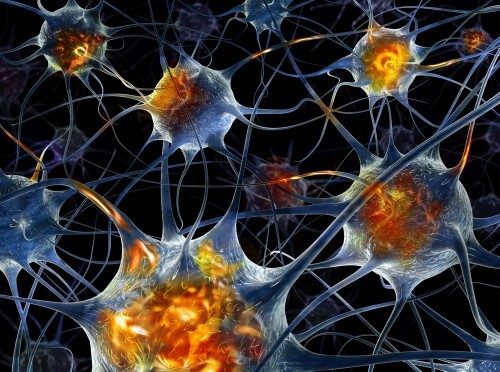Diminishing dysautonomia is a rare hereditary disease, whose carrier rate among Ashkenazi Jews is 1:30, and 1:18 among Jews of Polish origin The breakthrough may slow other neurodegenerative diseases, such as Alzheimer's, Parkinson's, Huntington's andALS

Groundbreaking research has identified the molecular mechanism that causes the death of neurons in the familial dysautonomia disease - and has also identified a treatment that corrects the problem, and can also be a slow treatment for other neurodegenerative diseases, such as Alzheimer's and Parkinson's.
The research was led by PhD student Shiran Naftalberg-Blonder, Prof. Eran Perelson and Prof. Gil Ast from the Sackler Faculty of Medicine at Tel Aviv University. His results were published last night (20.12.16) in the journal PloS Genetics.
Familial dysautonomia is an incurable hereditary disease, manifested in a lack of control over the voluntary and involuntary functions of the body. In the whole world there are about 350 patients with familial dysautonomia, about a third of them live in Israel. The rate of carrying the disease among Ashkenazi Jews is one in thirty, and one in eighteen among Ashkenazi Jews of Polish origin.
"In all the cells in the body there are a kind of roads, along which trucks travel that carry goods to all ends of the cell," explains Prof. Ast. "The cells of the peripheral nervous system contain the longest road system in the body, a meter-long two-way highway that runs on both sides of the spinal cord. The function of that cluster of neurons is to receive all the information from the neurons in the body, and send it for centralized processing in the brain. Already 30 years ago, they showed that the same cluster of neurons is small and degenerate in patients with familial dysautonomia."
That road system consists of two subunits that stick together, called alpha and beta tubulin. Together they produce the neurological transport system, microtubulin. Since the roads in the neurons are constantly being built and removed, according to the branching of the nerves, the body naturally produces two enzymes, one that glues the alpha and beta tubulin together, and another that removes this glue. The researchers showed for the first time that the enzyme that removes the glue is expressed in excess in the neurons of mice with familial dysautonomia - and even found a first-of-its-kind treatment.
A food supplement increased the normal activity of the damaged gene
"There is a food additive called phosphatidylserine," says Prof. Est. "We were able to show that this supplement increases the normal activity of the affected gene in familial dysautonomia, thus causing the body to synthesize the two enzymes, the infecting and separating, more equally. The result is more stable microtubulin, or more stable roads, at a level that approaches that of healthy neurons."
According to the researchers, phosphatidylserine, which is already on the market as a nutritional supplement, can, apparently, delay the progression of other neurodegenerative diseases, such as Alzheimer's, Parkinson's, Huntington's and ALS.
"In a considerable part of the neurodegenerative diseases, there is an overexpression of that enzyme, which leads to microtubulin degeneration," says Prof. Ast, "but you have to be careful, be cautious and not get false hopes, since the other diseases are more complex than the familial dysautonomia. At this stage, most of the existing drugs, as well as most of the drugs that will be released on the market, will only be able to slow down the disease. I believe that postepidylserine will also slow down the degeneration of neurons in these diseases."
The groundbreaking research was partially funded by the Teva Foundation for the Research of Neurodegenerative Diseases.
